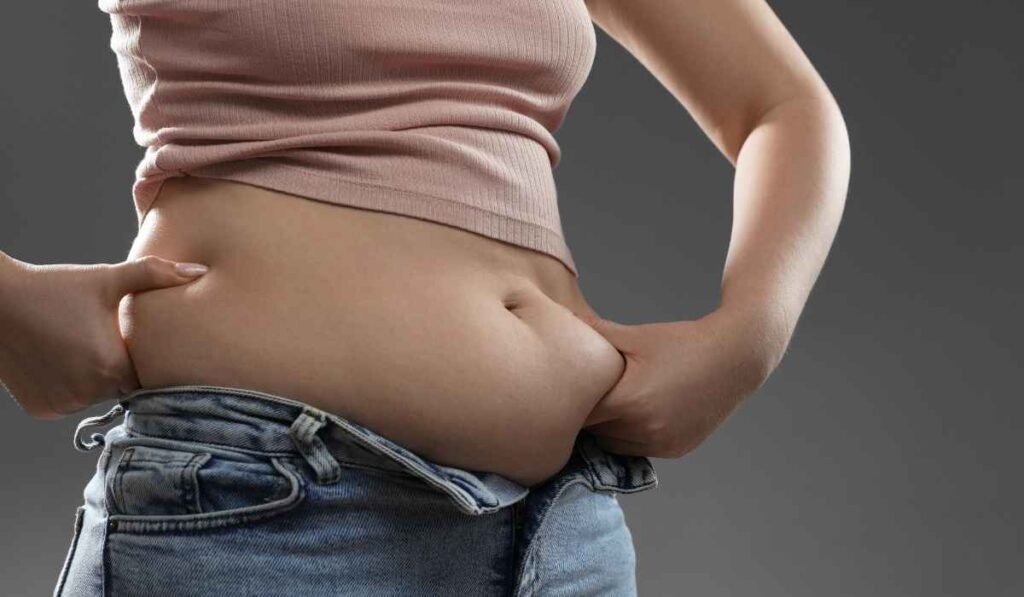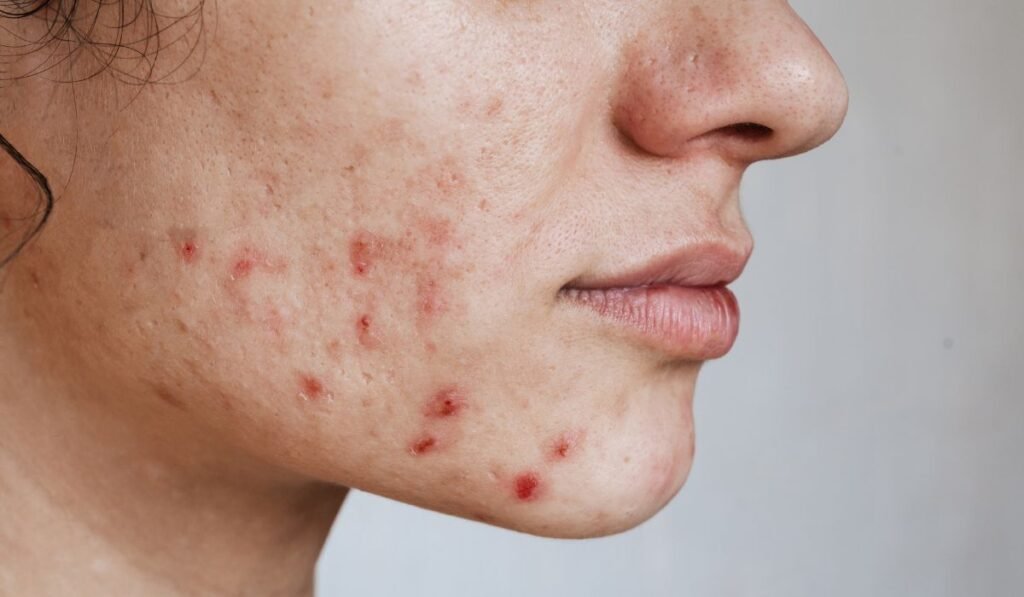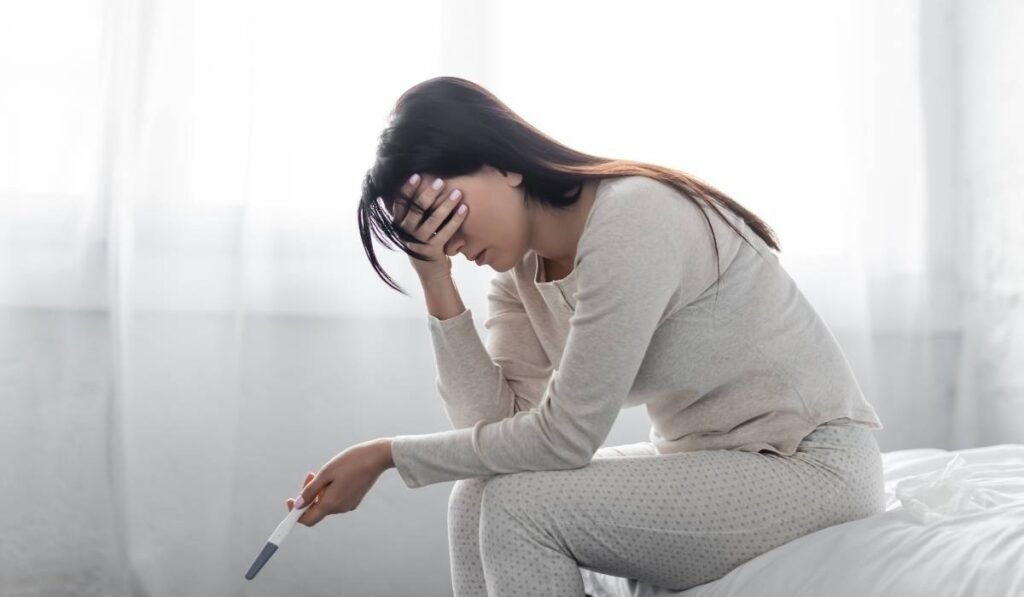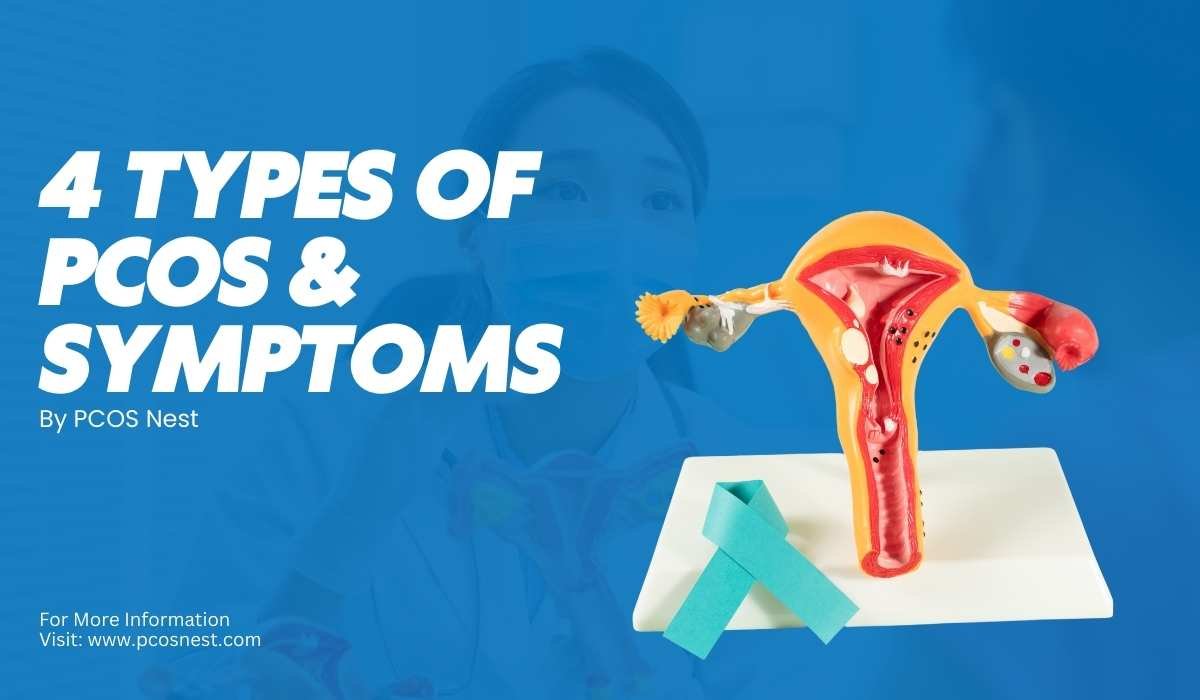Polycystic Ovary Syndrome (PCOS) is a complex hormonal disorder. While it’s commonly associated with irregular periods, infertility, and other symptoms, PCOS has distinct subtypes.
4 Types of PCOS and Symptoms:
Let’s look at the 4 types of PCOS, their root causes and symptoms.
1. Insulin-Resistant PCOS:
This is the most common type of PCOS. It happens when our body becomes resistant to insulin, a hormone that regulates blood sugar. The body starts producing more insulin, which can increase testosterone levels and disrupt ovulation.
Symptoms:
- Weight gain, especially around the belly
- Dark patches of skin (acanthosis nigricans), often on the neck or underarms
- Fatigue, especially after eating
- Cravings for sugary or carbohydrate-rich foods
- Excessive facial or body hair (hirsutism)
- Hair thinning or loss from the scalp

What Causes It?
- Eating too much sugar or processed foods
- Not being active enough
- Genetic factors
- Exposure to environmental toxins
2. Inflammatory PCOS:
This type of PCOS happens when the body has chronic inflammation. Inflammation can disturb hormone production, prevent ovulation, and worsen PCOS symptoms.
Symptoms:
- Skin problems like acne or eczema
- Constant fatigue or feeling tired all the time
- Elevated C-reactive protein (CRP) in blood tests
- Digestive issues such as bloating or irritable bowel syndrome (IBS)
- Headaches or joint pain
- Hair thinning or hair loss
What Causes It?
- Eating foods that cause inflammation, such as sugar, fried foods, or processed snacks
- Poor gut health or food intolerances
- High-stress levels
- Exposure to pollutants or toxins
Also Read: What Causes PCOS in Women?

3. Adrenal PCOS:
Adrenal PCOS is linked to the way our body handles stress. When we are under too much stress, our adrenal glands produce excess androgens (male hormones), like DHEAS, which can cause PCOS symptoms.
Symptoms:
- Feeling anxious or stressed.
- Trouble sleeping or poor-quality sleep
- High levels of DHEAS (confirmed by a blood test)
- Normal insulin and testosterone levels
- Hair thinning or excess body hair
What Causes It?
Adrenal PCOS is caused by the overproduction of androgens (male hormones) by the adrenal glands, which is often triggered by prolonged stress. Our body releases high levels of cortisol, the stress hormone when we experience constant emotional, physical, or environmental stress. This overstimulation of the adrenal glands can cause hormonal imbalance, especially an increase in DHEAS (a type of androgen produced by the adrenal glands).
Unlike other types of PCOS, adrenal PCOS is not directly linked to insulin resistance or inflammation but is instead connected to how our body reacts to and manages stress. Poor sleep habits, ongoing anxiety, and an overactive adrenal response can worsen the condition. Additionally, genetics and certain lifestyle factors can also cause adrenal PCOS.

4. Post-Pill PCOS:
This type of PCOS occurs after stopping hormonal birth control. The contraceptive pill suppresses ovulation, and for some women, it takes time for their bodies to regulate hormones naturally after stopping the pill.
Symptoms:
- Irregular or missed periods after stopping the pill
- Mild acne or skin problems
- Temporary hair loss (telogen effluvium)
Symptoms usually improve within 3-6 months.
What Causes It?
Post-Pill PCOS occurs when the body struggles to regulate its hormones after stopping the hormonal birth control pill. Birth control pills suppress ovulation by altering hormone levels, and for some women, it takes time for their natural cycle to restart once they stop taking the pill. During this adjustment period, the ovaries may temporarily overproduce androgens (male hormones), which causes PCOS-like symptoms such as irregular periods, acne, or mild hair loss. This type of PCOS is not caused by the pill itself but rather by the body’s response to the sudden hormonal changes after discontinuing it. Usually, this condition improves on its own within 3 to 6 months as hormone levels stabilize and ovulation resumes.
| Type of PCOS | Cause | Major Symptoms | Diet Recommendation |
|---|---|---|---|
| 1. Insulin-Resistant PCOS | Insulin resistance, where the body struggles to use insulin properly, leading to high testosterone levels. | 1. Belly fat gain 2. Dark skin patches (acanthosis nigricans) 3. Fatigue 4. Sugar cravings 5. Excess hair growth (hirsutism) 6. Hair thinning | Low-sugar, low-carb, high-fiber foods Leafy green vegetables, whole grains, and lean proteins Avoid processed and sugary foods |
| 2. Inflammatory PCOS | Chronic inflammation that disrupts hormone production and ovulation. | 1. Acne or skin problems 2. Constant fatigue 3. Bloating and digestive issues 4. Joint pain 5. Hair thinning | Anti-inflammatory foods like berries, fatty fish, nuts, and leafy greens Avoid fried, processed, and sugary foods |
| 3. Adrenal PCOS | High stress levels cause the adrenal glands to overproduce androgens like DHEAS. | 1. Anxiety or stress 2. Trouble sleeping 3. Normal insulin levels but high DHEAS 4. Excess body hair 5. Hair loss | Balanced meals rich in protein, healthy fats, and fiber Avoid caffeine and sugar Include stress-relieving foods like nuts and seeds |
| 4. Post-Pill PCOS | Hormonal imbalance after stopping birth control delays the return of natural ovulation. | 1. Irregular periods 2. Mild acne 3. Temporary hair loss 4. Symptoms typically improve within 3–6 months | Foods rich in zinc, magnesium, and B vitamins (nuts, seeds, leafy greens) Avoid processed and junk foods |
Frequently Asked Questions:
How do I know which type of PCOS I have?
To find out which type of PCOS you have, pay attention to your symptoms and consult a doctor for proper testing. A blood test can check for hormone levels like insulin, testosterone, and DHEAS, which help in identifying the root cause. For example, high insulin points to insulin-resistant PCOS, while high DHEAS points to adrenal PCOS. If you have chronic inflammation symptoms like bloating or skin issues, it could be inflammatory PCOS. If symptoms started after stopping birth control, it might be post-pill PCOS. An ultrasound can also check for ovarian cysts, though not all women with PCOS have them.
Which type of PCOS is most dangerous?
The Insulin-Resistant type of PCOS is considered the most dangerous because it significantly increases the risk of severe health conditions such as type 2 diabetes, obesity, cardiovascular disease, and metabolic syndrome. These risks arise due to the body’s inability to utilize insulin effectively, which causes higher levels of insulin and glucose in the blood, which can cause long-term complications if left untreated.
What is the biggest symptom of PCOS?
The biggest symptom of PCOS is irregular periods that is caused by hormonal imbalances that disturb ovulation. This can mean missed periods, fewer periods in a year, or unpredictable cycles.
Is PCOS common after stopping birth control?
PCOS does not develop due to stopping birth control, but symptoms resembling PCOS can appear temporarily after discontinuing it. Hormonal contraceptives often suppress the body’s natural hormones, and when stopped, it may take a few months like around 3 for hormonal balance and ovulation to normalize.

